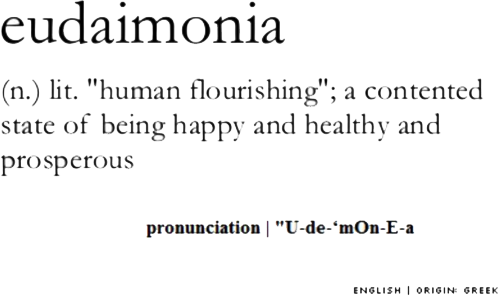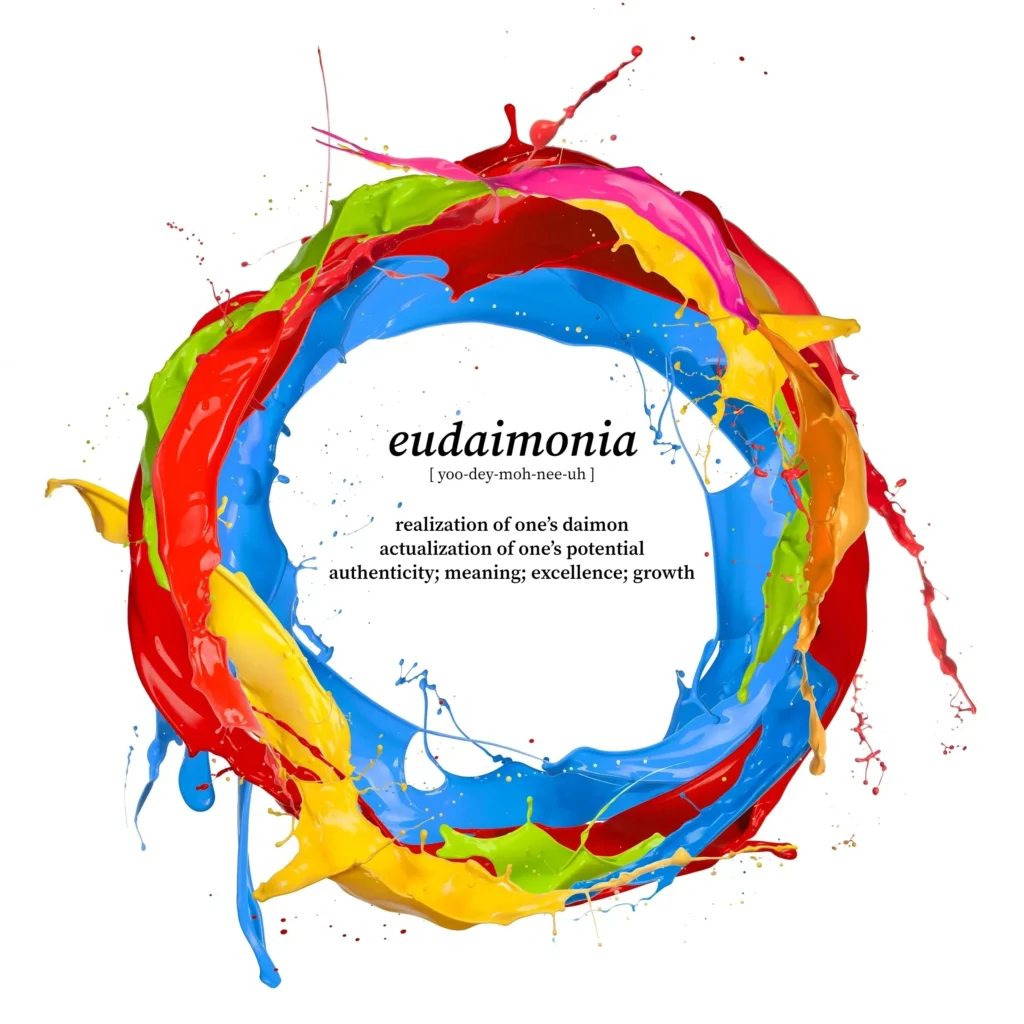Dr.Jailaxmi R Vinayak

Eudaimonia
Eudaimonia is charecterised by a state of well being, positivity and emotions of joy, contentment and happiness. According to Aristotle eudaimonia was used for human good in Greek tradition. It is a combination of happiness, well being and flourishing.This goal of eudaimonia is best achieved by following the virtues and developing a righteous disposition.
It is a synonym and a better word than happiness particularly emphasised by Plato and Aristotle. What is the true key to happiness? Is it success? Is it owning a sprawling bungalow? Is it amassing wealth? Is it owning the amazing car? A person feels erroneously that if he gets everything, above-mentioned he will be happy So he chases and runs for happiness like hamsters on a wheel.

There are three reasons to make people happy. First is pleasure – deriving from what one likes to do. Second is engagement-busy in being connected to some activity. Third is meaning that is holding the belief that what one does, matters. Aristotle defined four layers of eudaimonia. Laetus- Happiness from material objects. Felix- Ego gratification. Beatitude- Happiness derived from doing good to others and making the place a better world. Sublime beatitude- (To lift up or elevate) This category the most difficult to describe, encompass, a reach for fullness and perfection of happiness.
The fullness therefore of goodness, beauty, truth and love. As understood by Christianity, it is not an empty Nirvana, the deadly repose of inactivity. The beatitude is an immense activity springing from knowledge to knowledge, from love to love. A few gifted men know the delight of intellectual discovery, a delight that compensates them for long hard years of mental toil.
Real and lasting happiness comes from growth. What we become in this process is the lasting happiness. If one focusses on everyday to become virtuous, happiness and success will come as a by- product. Aristotle has emphasised on virtue ethics that defines good actions inculcating virtuous traits like courage , loyalty and wisdom. The progress principle is pleasure comes more from making progress towards goals than from achieving them. Bhagwat Geeta reinforces this fact that one must happily focuss on efforts rather tha results.
Eudaimonia can be distinguished both from negative emotions like sadness anger and fear and also from other positive emotions such as affection, excitement and interest. Henry David Thoreau says, “Happiness is like a butterfly: the more you chase it, the more it will elude you. But if you turn your attention to other things, it will come and sit softly on your shoulder.”

It is possible that someone could experience a great deal of negative emotions yet still acknowledge that the conditions of his or her life are better.For example someone who works with the poor, the sick physically disabled and orphans may experience negative emotions but may also feel satisfied with life because the work is worthwhile. Those who are engaging in hedonistic pleasures may experience frequent momentary postive emotions but they may also feel that life is empty and meaningless. What is pertinent is to be equanimous and balanced in both states sorrows and happiness, a tough task indeed but can be strived for assiduously.
Read More : Obsessive-Compulsive Disorder OCD By: Dr. Ayushi Shrivastava
Read More : Unlock Your Potential With Good Nutrition By: Dr. Ayushi Shrivastava
Read More : INCREASE CORE MUSCLE STRENGTH FOR HEALTHY BODY by yoga practice and workout for get energy for the day
Read More : On the Pursuit of Meraki Moments
Read More : A Glimpse into my Trinbagonian Culture
